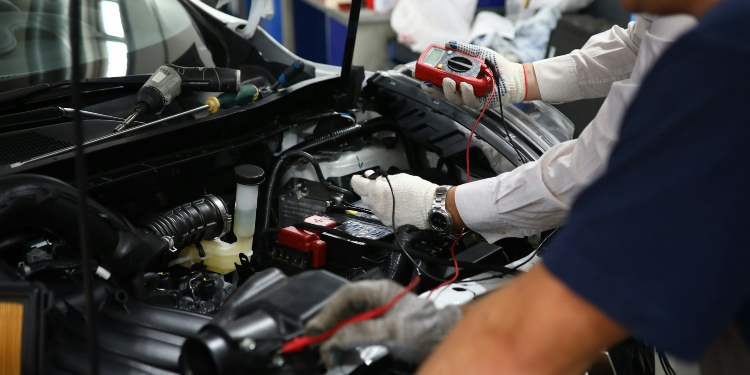Diesel engines have been the backbone of industrial and transportation development for many years. These engines are reliable, robust, energy-efficient, and produce high torques; hence they are dependable in many industries. Used diesel engines are still dominant across various applications despite the availability of advanced options in terms of propulsion technologies.
Industrial Perspective
Understanding the energy consumption of handling container systems sheds light on the technical efficiency of the handling equipment, and more notably, the diesel-powered container trucks, through analysing the energy per route (cycle). Users should closely examine the energy utilisation in the ”ship-truck-stack-ship” process, using a formula to determine on-cycle energy utilisation. Furthermore, it becomes crucial to understand the role of container handling systems in maritime shipping and port operations to assess the energy implications of global trade better.
Environmental Concerns
In response to these environmental challenges, a critical aspect concerns the future of used industrial diesel engines in ships, mainly in the light of low-carbon fuel, innovative technologies, and emissions control systems in marine shipping. This aspect is essential to understand their further trend toward a more environmentally friendly and low-carbon power. At the same time, the critical evaluation of the sustainability of the used diesel engines becomes an important topic. Many players in the industry are constantly looking for alternatives methods of fuel rather than the outdated used parts. In this way, the negative impact reduces with better options at our disposal.
Market & Applications
Another crucial aspect is the market forces on a local and international front. There are many uses attached to these pieces. Some include commercial vehicles together with the rail and off-road options. Power generation cannot be ignored in this case. Many industries still employ diesel engines for their activity. In some cases, the electronic parts are taken for back up purposes. The market dynamics relate to what is permitted in the specific country and other issues such as sale and reuse. The recurring theme in many of these policies trickle down to environmental sustainability and safety.
Reducing the Concerns
Reducing the environmental effect of used diesel engines is a more relevant task in recent years. Society generally expects responsible usage on all fronts. The corresponding legislation does not go far in terms of the requirements for private and industrial users. These policies mark out the necessary steps to control emissions from such engines and how they can conform to the set environmental benchmarks. The place for used engines should not be diminished but enhanced so they can co-exist with other electronic devices. Also, the feasibility of new renewable and low-life cycle carbon fuels in marine applications, especially in handling systems of commercial ships, has become crucial in explaining the transition towards sustainability.
Final Words
Used diesel engines have a history of reliability supported by longevity and performance in multiple fields of industry and transit. Nevertheless, environmental conditions threaten the continued advancements of used diesel engines. However, in light of software technologies, coupled with the adoption of widespread marginal fuels, it is true to envision a brighter and sustainable future for used diesel engines. This bears more significance in two pivotal areas: the manufacturing business, which now depicts more commitment to sustainable practices and accountability for environmental issues.
David Prior
David Prior is the editor of Today News, responsible for the overall editorial strategy. He is an NCTJ-qualified journalist with over 20 years’ experience, and is also editor of the award-winning hyperlocal news title Altrincham Today. His LinkedIn profile is here.












































































